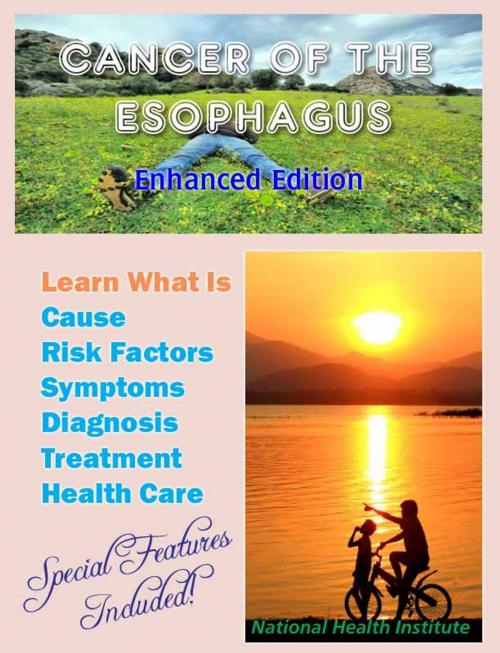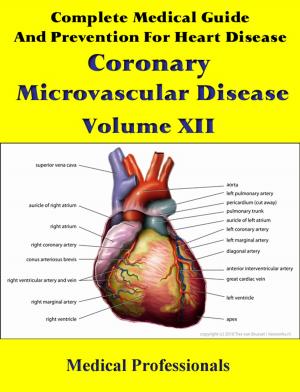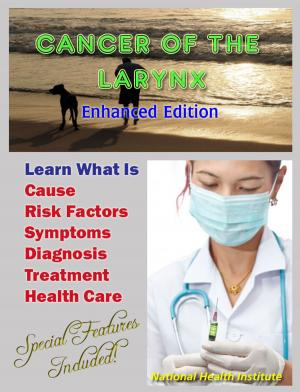Cancer of the Esophagus
Learn What Is Cause, Risk Factors, Symptoms, Diagnosis, Treatment, Health Care
Nonfiction, Health & Well Being, Health, Ailments & Diseases, Cancer, Health Care Issues| Author: | National Cancer Institute | ISBN: | 1230000032692 |
| Publisher: | MedHealth | Publication: | November 23, 2012 |
| Imprint: | Language: | English |
| Author: | National Cancer Institute |
| ISBN: | 1230000032692 |
| Publisher: | MedHealth |
| Publication: | November 23, 2012 |
| Imprint: | |
| Language: | English |
Esophageal cancer (or oesophageal cancer) is malignancy of the esophagus. There are various subtypes, primarily squamous cell cancer (approx 90–95% of all esophageal cancer worldwide) and adenocarcinoma (approx. 50–80% of all esophageal cancer in the United States). Squamous cell cancer arises from the cells that line the upper part of the esophagus. Adenocarcinoma arises from glandular cells that are present at the junction of the esophagus and stomach.
Esophageal tumors usually lead to dysphagia (difficulty swallowing), pain and other symptoms, and are diagnosed with biopsy. Small and localized tumors are treated surgically with curative intent. Larger tumors tend not to be operable and hence are treated with palliative care; their growth can still be delayed with chemotherapy, radiotherapy or a combination of the two. In some cases chemo- and radiotherapy can render these larger tumors operable. Prognosis depends on the extent of the disease and other medical problems, but is generally fairly poor.
Esophageal cancer (or oesophageal cancer) is malignancy of the esophagus. There are various subtypes, primarily squamous cell cancer (approx 90–95% of all esophageal cancer worldwide) and adenocarcinoma (approx. 50–80% of all esophageal cancer in the United States). Squamous cell cancer arises from the cells that line the upper part of the esophagus. Adenocarcinoma arises from glandular cells that are present at the junction of the esophagus and stomach.
Esophageal tumors usually lead to dysphagia (difficulty swallowing), pain and other symptoms, and are diagnosed with biopsy. Small and localized tumors are treated surgically with curative intent. Larger tumors tend not to be operable and hence are treated with palliative care; their growth can still be delayed with chemotherapy, radiotherapy or a combination of the two. In some cases chemo- and radiotherapy can render these larger tumors operable. Prognosis depends on the extent of the disease and other medical problems, but is generally fairly poor.















